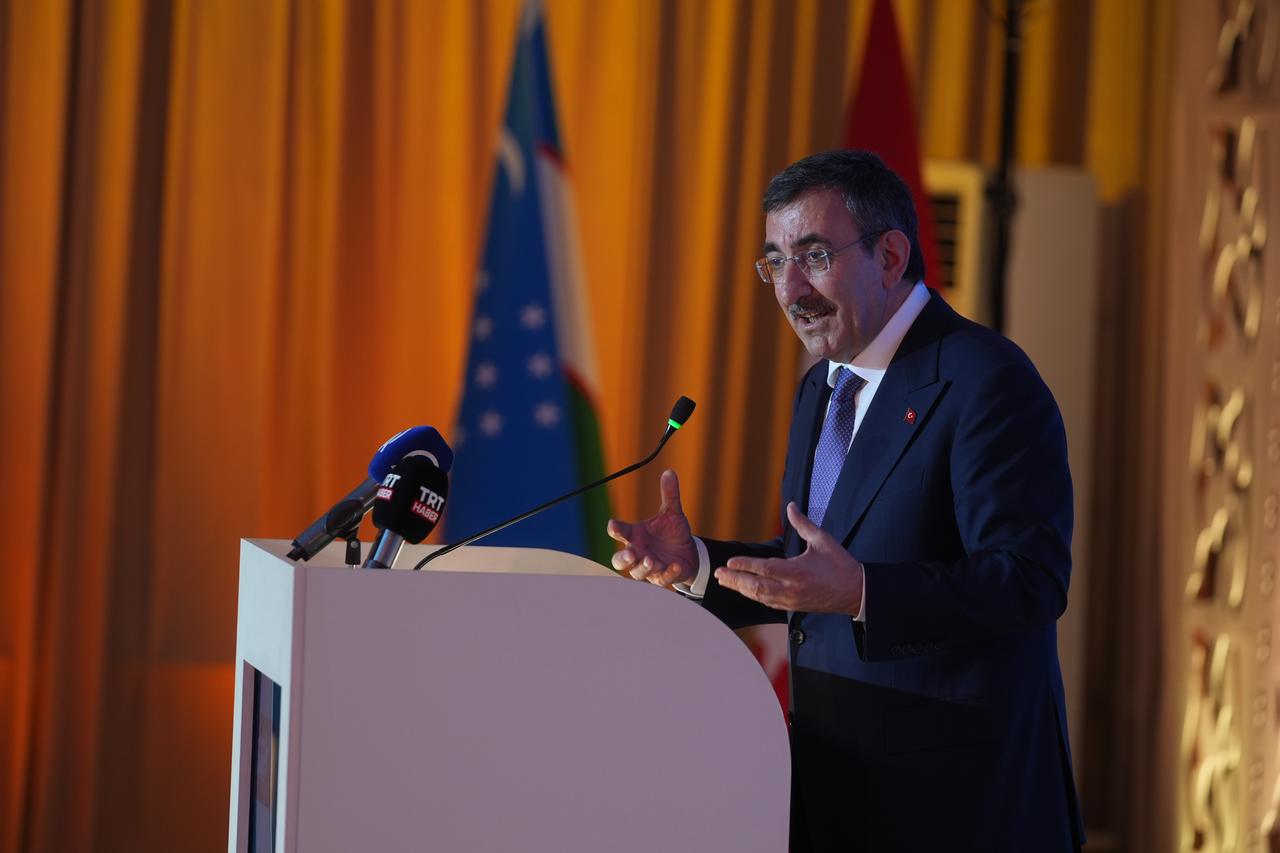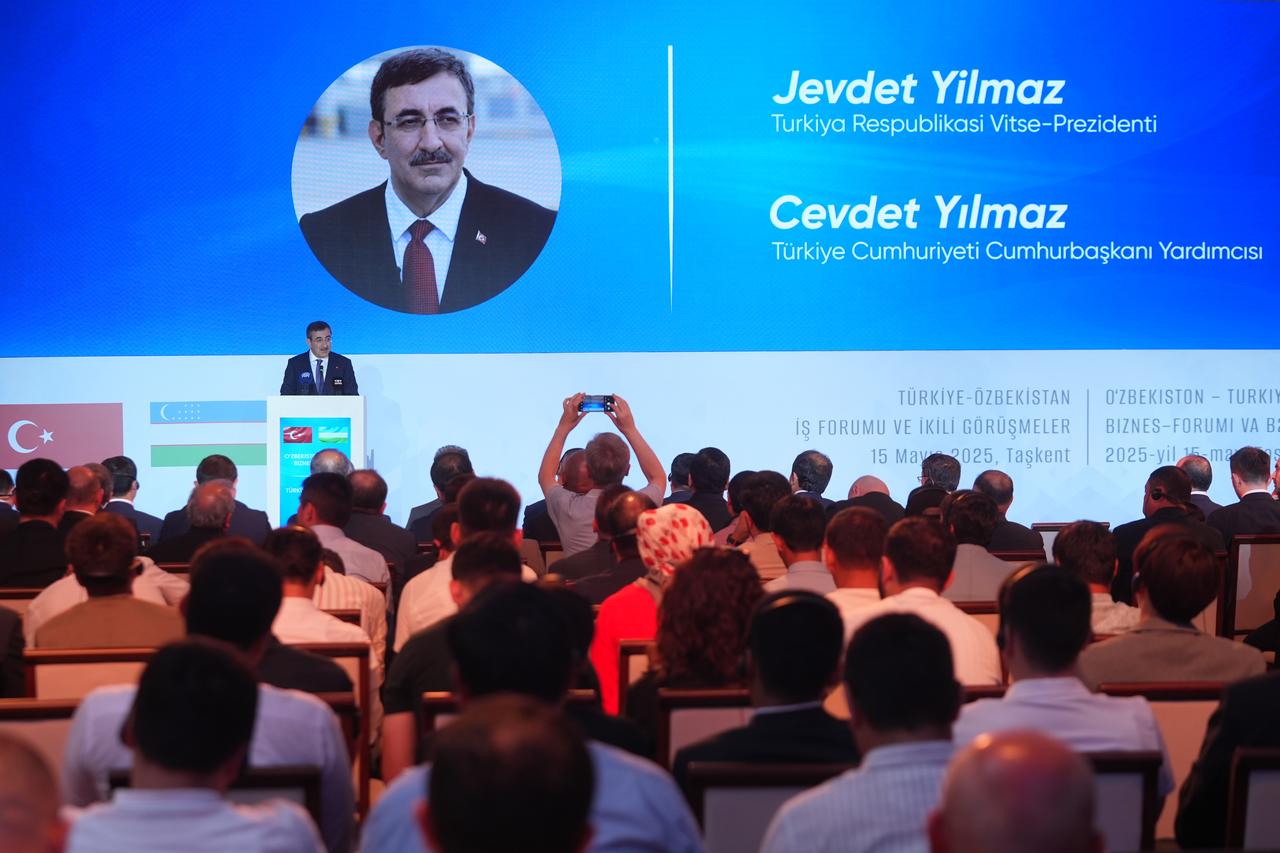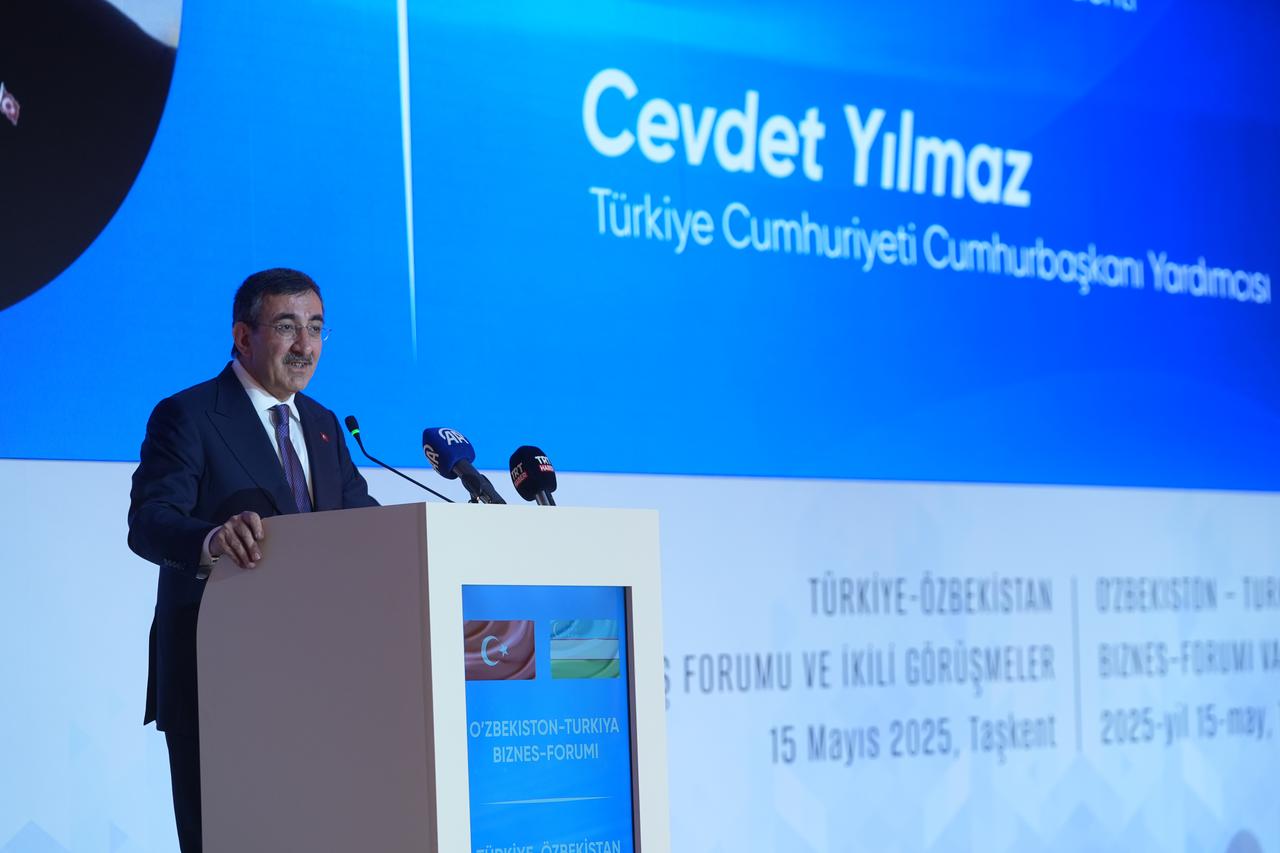
Türkiye will continue to deepen its trade and investment ties with Uzbekistan, Vice President Cevdet Yilmaz said Thursday during the Türkiye-Uzbekistan Business Forum in Tashkent.
Speaking at the event, Yilmaz noted that nearly 1,900 Turkish companies are currently operating in Uzbekistan, with a total investment volume of $5.6 billion. These businesses, he said, not only create employment opportunities but also contribute significantly to Uzbekistan’s public finances through taxes and export activities. “We hope to see even more Turkish firms entering the Uzbek market,” Yilmaz added.

Emphasizing the strong historical and cultural ties between the two nations, he pointed out that the brotherhood once fostered along the ancient Silk Road has transformed into a solid foundation for modern cooperation.
He also highlighted the close and trust-based relationship between Turkish President Recep Tayyip Erdogan and Uzbek President Shavkat Mirziyoyev, stating that their leadership has played a pivotal role in elevating bilateral ties. According to Yilmaz, this mutual understanding has paved the way for enhanced collaboration across a wide range of sectors.
Yilmaz underlined that the recently concluded eighth Term Joint Economic Commission (JEC) produced decisions involving both public institutions and private sector actors. One key outcome, he said, was an agreement to expand the existing Preferential Trade Agreement to cover a wider range of goods, with the aim of increasing bilateral trade volume.

In addition, Yilmaz announced plans to improve both bilateral and transit road transportation by eliminating the need for transit permits. He stressed that reducing bureaucratic and physical bottlenecks, as well as lowering transportation costs, would help boost the competitiveness of private enterprises operating in both countries.
Strategic cooperation between Türkiye and Uzbekistan, he said, should not be confined to traditional sectors such as industry and agriculture. Tourism, he argued, represents a promising avenue for collaboration, citing Türkiye’s position as the world’s fourth most visited destination and expressing Ankara’s willingness to share expertise in tourism development.
Yilmaz also identified health care, agriculture, and food production as key sectors for expanded cooperation. He acknowledged that while current trade volume stands at $3 billion, it remains well below the full potential of bilateral economic engagement. Leaders from both sides have set an initial target of $5 billion, with a longer-term goal of reaching $10 billion.
The vice president concluded by stressing that this growth will be primarily driven by the private sector, while the Turkish and Uzbek governments work to create a supportive policy environment to help meet these ambitious targets.